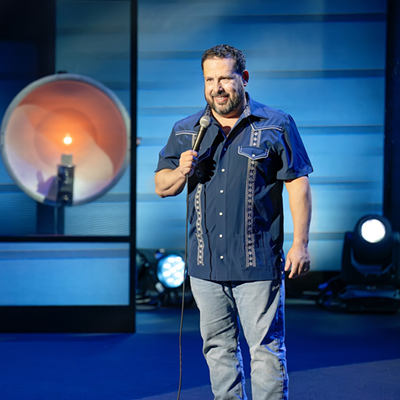For six hours, Sarah Roberts trudged through knee-deep mud, high in the mountains of Northern Guatemala.
Ahead of her, an indigenous couple carried their malnourished 17-month-old baby, hoping to find medical treatment at the nearest hospital.
"They were walking out of their community into a different world," said Roberts, a registered nurse who volunteers for the Tucson-based St. Michael's Guatemala Project. "They are afraid they won't be understood. They speak an indigenous language and are afraid of racism."
Founded in 1993, the St. Michael's Guatemala Project works with health promoters in the northern Quiché region of Guatemala to provide basic health care and health-care education to the indigenous population.
During the last quarter of the 20th century, Guatemala's native Ixil community, an indigenous group of subsistence farmers, was labeled as rebels and eliminated by the Guatemalan government. At the height of the conflict, the Guatemalan military, by its own count, destroyed 440 villages and killed more than 250,000 civilians.
On May 28, acclaimed author Byrd Baylor, a Tucson native and a recipient of numerous awards for her children's books, will read from her essays and children's stories at a send-off for the St. Michael's Guatemala Project teams.
Baylor, who has been reading at the Guatemala Project send-off party since 2004, said she loves the work that the Guatemala Project does.
"I am not there because I am religious," she said. "I love what they do. I like the idea of really helping people. Also, they ask me to read, and how can I say no?"
Project coordinator Ila Abernathy said the Guatemala Project works with indigenous people who live in the areas hardest hit during the conflict. Abernathy said the violence peaked when government soldiers sought to cut off potential support for guerilla rebels by targeting the rural communities where they were based.
"Every family had the anguish of having left a settled community, where maybe their ancestors had lived for centuries, and ... having their huts destroyed and fleeing into the night," she said.
She first went to Guatemala four years before the conflict "officially" ended in 1996.
"In the early years, we mostly got supplies in and acted as an international presence to bring recognition to the conflict," she said.
Abernathy, who has a master's degree in English literature, said she had no background in international medicine and crisis relief when she went to Guatemala for the first time.
"Only an English major would say, 'Let's start a health project in one of the most difficult areas, for people who are noted as not being an easy group to work with," she said.
Abernathy described the native Ixil population as being the poorest of the poor. She described a particular occasion when a foreign doctor was educating local health coordinators on how to make rehydration salts. The doctor was describing how many tablespoons of salt and sugar to add to the water when a health coordinator raised his hand and said that some of the families don't even have spoons.
After the conflict ended in 1996, many of the native Ixil were moved to coastal regions, where they struggle to produce enough food to survive.
The Guatemala Project has worked to build a relationship with many of the native communities over the years—a process that has endeared them to the native population, Abernathy said.
"I am a toes-in-the-mud sort of person. If you have done any work with indigenous (people), you realize that relationships over time are important," she said.
She explained that volunteers for the Guatemala Project—who travel in small teams in mid-June through mid-August—generally need a working knowledge of Spanish and some experience in developing countries.
"If we have a person with the right skills, they might do a bilingual book that has some health implications," she said. "One of the books we use is Mr. Sugar Came to Town," which describes what happens when someone changes from a traditional diet to a diet including a lot of pre-prepared sweet stuff.
Both Abernathy and Roberts said they keep going back to Guatemala because they are inspired by the Ixil population's dedication to their community.
"I learn a lot about giving back to the community," said Roberts. "I learn a lot about keeping your sense of humor in the middle of struggle. I learn a lot about compassion."







